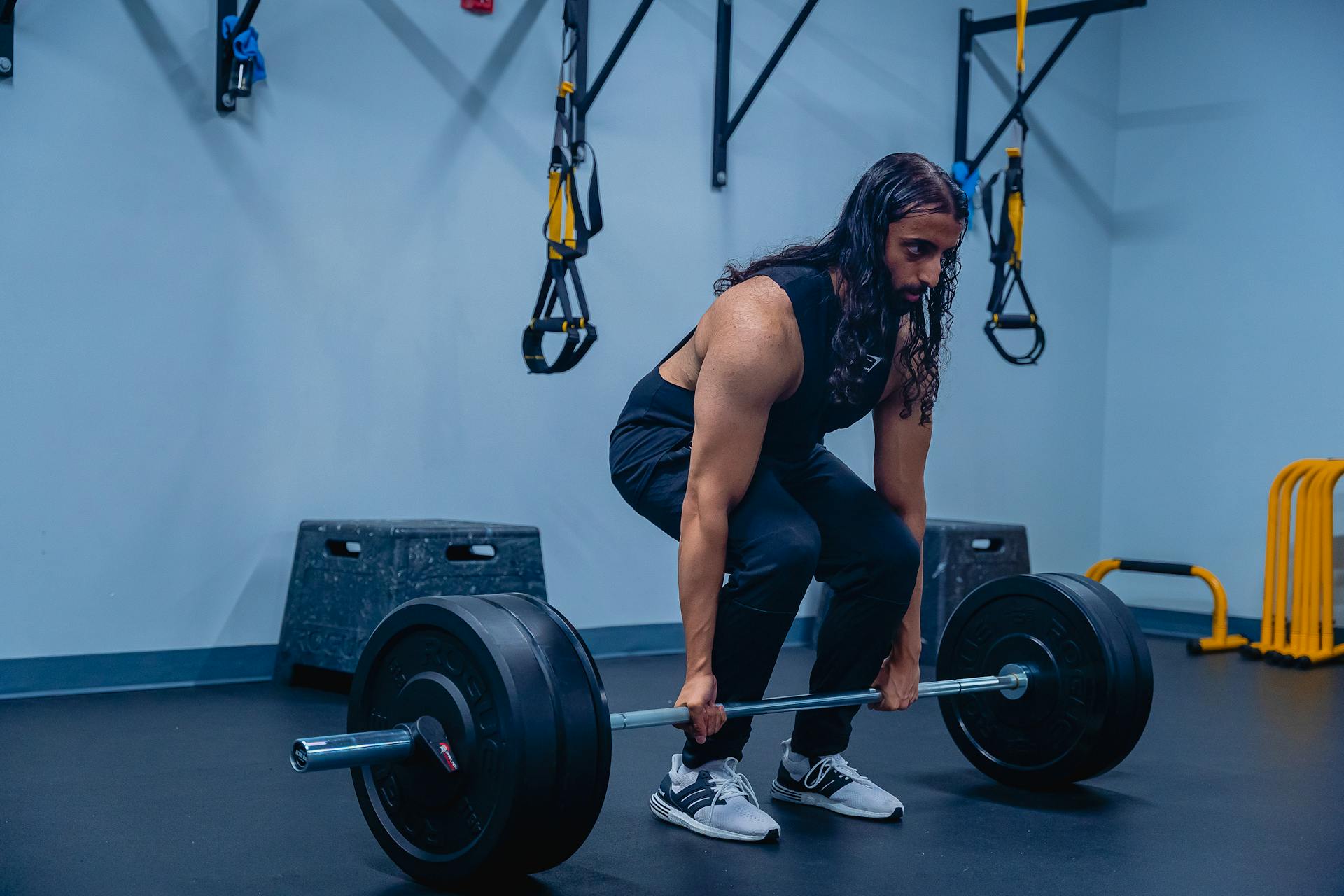
A good mouthguard should fit snugly and comfortably over your teeth, gums and braces (if you have them). It should not impede your breathing or speaking. If you play contact sports, look for a mouthguard that has been certified by a governing body, such as the American Dental Association.
To find a mouthguard that fits well, start by trying different brands and sizes at a sporting goods store. If you wear braces, get a mouthguard that's made specifically for them. The best way to get a comfortable, properly fitting mouthguard is to have one made by your dentist. He or she can take an impression of your teeth and make a mouthguard that will fit your mouth exactly.
Once you have your mouthguard, take the time to get used to wearing it. Practice speaking and breathing with it in. If it's too big or too small, you'll know right away. If it's uncomfortable, try adjusting it or ask your dentist to make some changes.
Wearing a mouthguard is a simple way to help protect your teeth, gums and jaw while you're playing sports. Be sure to take care of your mouthguard and clean it after each use. With proper care, it should last for many seasons.
Readers also liked: Can You Wear a Mouthguard with Braces?
How tight should a mouthguard be?
There is no definitive answer to the question of how tight a mouthguard should be. The answer may vary depending on the individual and the situation. For example, a mouthguard for a contact sport such as football may need to be tighter than a mouthguard for a less physical activity such as basketball. In general, however, a mouthguard should be tight enough to stay in place during use, but not so tight that it is uncomfortable or difficult to breathe. If a mouthguard is too loose, it may not provide adequate protection in the event of a fall or collision. If a mouthguard is too tight, it may cause discomfort or interfere with breathing. The best way to determine the appropriate level of tightness for a given mouthguard is to consult with a dentist or other medical professional.
How do you know if a mouthguard is too tight?
Mouthguards are designed to protect your teeth and gums from injury during sport or other activities. However, if a mouthguard is too tight, it can actually do more harm than good. Here are a few things to look out for to know if your mouthguard is too tight:
1. You can't breathe properly.
If you find yourself gasping for air or feeling like you can't take a deep breath while wearing your mouthguard, it's probably too tight. A mouthguard that is too tight will restrict your airflow and can lead to hyperventilation.
2. You can't speak properly.
If you find that you can't speak properly or that your words are slurred while wearing your mouthguard, it's definitely too tight. A mouthguard that is too tight will make it difficult to form words and can cause you to sound like you're mumbling.
3. Your jaw hurts.
If you notice that your jaw is starting to hurt while wearing your mouthguard, it's likely because the mouthguard is too tight. A mouthguard that is too tight can cause your jaw to move in an unnatural way and can lead to pain and discomfort.
4. You have a headache.
If you develop a headache after putting on your mouthguard, it's a sign that the mouthguard is too tight. A mouthguard that is too tight can cause pressure on your temples and lead to a headache.
5. You feel dizzy.
If you feel lightheaded or dizzy while wearing your mouthguard, it's a sign that the mouthguard is too tight. A mouthguard that is too tight can cause you to feel dizzy because it restricts blood flow to your head.
If you experience any of these symptoms while wearing your mouthguard, it's important to loosen it or remove it altogether. A mouthguard that is too tight can cause serious health problems, so it's important to be aware of the signs and make sure that you're wearing it properly.
How do you know if a mouthguard is too loose?
Mouthguards are an important piece of safety equipment for many athletes, but they can also be a source of confusion and frustration. How do you know if a mouthguard is too loose? Is there a right or wrong way to wear one?
There is no one answer to these questions, as it depends on the athlete's individual mouth anatomy and how their teeth fit together. However, there are a few general tips that can help.
First, it is important to choose the right size mouthguard. If the mouthguard is too small, it will be uncomfortable and may not fit properly. If the mouthguard is too large, it will be loose and may not provide adequate protection.
Second, it is important to pay attention to how the mouthguard feels when it is in place. It should fit snugly but not be so tight that it is uncomfortable or difficult to breathe. If the mouthguard is too loose, it will move around in the mouth and may not provide adequate protection.
Third, it is important to test the mouthguard before using it in competition. The mouthguard should be worn for a few minutes to make sure it is comfortable and does not cause any pain or discomfort. If the mouthguard is too loose, it will likely not stay in place during competition and may need to be readjusted frequently.
Fourth, it is important to consult with a dentist or other medical professional if there are any concerns about how the mouthguard fits. They can help to ensure that the mouthguard is the right size and fits properly.
Overall, there is no definitive answer to the question of how to know if a mouthguard is too loose. However, by following these general tips, athletes can be sure that their mouthguards fit properly and provide adequate protection.
Suggestion: Mouth Guard
What is the best way to clean a mouthguard?
The best way to clean a mouthguard is to rinse it with cold water after every use. You can also brush it with a toothbrush and toothpaste. Mouthguards should be disinfected with boiling water for 5 minutes at least once a week.
How often should you replace your mouthguard?
If you play high-impact sports or participate in any activity where there is a risk of your teeth being knocked out, you should wear a mouthguard. A mouthguard is a soft, comfortable, rubbery appliance that fits over the teeth and gums to help protect them.
Mouthguards come in different sizes, shapes and colors. They can be custom-made or purchased over-the-counter. Custom-made mouthguards are more expensive but offer the best fit and protection. Over-the-counter mouthguards are less expensive but may not fit as well or be as comfortable.
You should replace your mouthguard if it is:
-Damaged
-Worn out
-Too small
-Too loose
-Not comfortable
-No longer providing adequate protection
Custom-made mouthguards usually last 3-5 years, while over-the-counter mouthguards need to be replaced more often.
If you take good care of your mouthguard, it will last longer. Be sure to:
-Rinse your mouthguard in cold water after each use
-Brush your mouthguard with a toothbrush and toothpaste
-Store your mouthguard in a cool, dry place
-Avoid sitting on or chewing on your mouthguard
Mouthguards are an important part of protecting your teeth and gums. Be sure to replace yours as needed to ensure you’re always getting the best protection possible.
What are the consequences of not wearing a mouthguard?
One of the most serious consequences of not wearing a mouthguard while participating in sports is the risk of sustaining a concussion. A concussion is a type of brain injury that can occur when the head is struck with enough force to cause the brain to move around inside the skull. This can happen when a player is hit in the head with a ball, a stick, or another player. Concussions can range from mild to severe, and can cause a variety of symptoms including headache, nausea, dizziness, confusion, and loss of consciousness. In some cases, concussions can lead to more serious problems such as bleeding or swelling of the brain, which can be life-threatening.
Another potential consequence of not wearing a mouthguard is dental damage. When the teeth are not protected by a mouthguard, they are more vulnerable to being chipped, cracked, or knocked out entirely. Dental damage can be extremely painful and can require extensive and costly dental work to fix.
Finally, not wearing a mouthguard puts you at risk of suffering other injuries to the head and face. Without the mouthguard to absorb impact, the teeth, lips, tongue, and cheeks are all more susceptible to being cut or bruised. In some cases, players have even sustained fractures to the bones in the face.
In conclusion, the consequences of not wearing a mouthguard while participating in sports can be quite serious. Concussions, dental damage, and other facial injuries are all possible, and can have a negative impact on both your physical and your mental health. It is important to always wear a mouthguard to protect yourself while playing sports, and to seek medical attention if you think you may have suffered a concussion or any other type of head injury.
Broaden your view: When Should Groomsmen Get Fitted for Tux?
What are the consequences of wearing a mouthguard that does not fit properly?
There are a number of consequences that can occur from wearing a mouthguard that does not fit properly. One of the most common consequences is that the mouthguard can become loose and fall out, which can leave the teeth unprotected and susceptible to injury. Another possibility is that the mouthguard can rub against the gums and teeth, causing irritation, pain, and even bleeding. In addition, a poorly fitting mouthguard can interfere with breathing and speaking, and can cause drooling. Finally, a mouthguard that does not fit properly is simply not as effective at protecting the teeth as one that does fit properly, and thus increases the risk of dental injuries.
A different take: Does It Fit in My Car?
How can you tell if a mouthguard is comfortable?
There are a few things you can do in order to test if a mouthguard is comfortable. First, you can hold the mouthguard in your mouth and bite down on it. If it feels comfortable and secure, then it is likely a comfortable mouthguard. Another way to test comfort is to try to talk while wearing the mouthguard. If you can speak easily and without pain, then the mouthguard is likely comfortable. Finally, you can try to drink water while wearing the mouthguard. If you can drink without leaking or pain, then the mouthguard is likely comfortable.
What is the best way to store a mouthguard?
Mouthguards are an important piece of equipment for many athletes, particularly those who participate in contact sports. While mouthguards can help prevent injuries to the teeth and jaw, they must be properly cared for in order to be effective. Improper storage of a mouthguard can lead to a number of problems, including damage to the mouthguard itself and the growth of bacteria.
The best way to store a mouthguard is in a clean, dry place. Ideally, the mouthguard should be stored in a hard case that is designed specifically for mouthguards. This will protect the mouthguard from being crushed or damaged. If a hard case is not available, a soft, padded case can be used. The mouthguard should not be stored in a sealed bag or container, as this can trap moisture and lead to the growth of bacteria.
It is important to thoroughly clean the mouthguard before and after each use. The best way to clean a mouthguard is to rinse it with warm water and soap. A toothbrush can also be used to clean the surface of the mouthguard. The mouthguard should then be rinsed with clean water and allowed to air dry. Do not use hot water or put the mouthguard in the dishwasher, as this can damage the material.
If you are not using the mouthguard for an extended period of time, it is important to clean it and store it properly to prevent the growth of bacteria. The mouthguard should be cleaned as described above and then placed in a clean, dry container. It is important to allow the mouthguard to air dry completely before sealing the container. The mouthguard should be stored in a cool, dry place.
Mouthguards are an important piece of equipment for many athletes. Proper care and storage of mouthguards is essential to ensure that they remain effective and safe.
On a similar theme: Piece Swimsuit Fit
Frequently Asked Questions
How do you fit a mouthguard?
First, remove the mouthguard from its packaging and insert it into your mouth. Get used to what it feels like and how it will fit. If it is too big, you can trim it down to fit better. Once the fit is better, practice biting into it.
Should a mouth guard be comfortable to wear?
Yes, ideally it should be comfortable to wear so that you can relax and focus on your sport.
How do I know if my mouthguard is right for me?
There is no one-size-fits-all answer to this question, as the best mouthguard for each person will vary depending on their unique anatomy and dental implant placement. However, some general tips that may help you find a fitting mouthguard include being sure to choose a guard that is the correct size for your jawbone and teeth, checking to make sure the guard does not protrude from your lips, and speaking with an orthodontist or dentist about which type of mouthguard may be best for you.
How should a dental guard fit?
When fitting a dental guard, it is important that it pops into place and fits snugly against your tooth. If you have trouble adjusting the fit, try biting down on the opposite side of the guard for a few seconds; this should help to secure it in place.
How do I know if my mouthguard is fit?
There are a few things you can do to check the fit of your mouthguard. One is to stringently follow the instructions that came with your guard, checking that it is fitted snugly and correctly, and doesn’t move around or feel uncomfortable when biting down. You should also try speaking normally without any obstruction, as even small changes in Audio Resonance can disrupt natural speech. If speaking is still difficult, it might be necessary to have your mouthguard resized.
Sources
- https://www.wikihow.com/Mould-a-Mouthguard
- https://fitnesscoached.com/articles/should-you-be-able-to-close-your-mouth-with-a-mouthguard
- https://nxtrndusa.com/blogs/how-to/should-a-mouthguard-be-tight
- https://gladiatorguards.com/are-you-protected-4-ways-to-check-the-fit-of-your-mouthguard/
- https://www.wetsuitwearhouse.com/blog/how-should-a-rash-guard-fit/
- https://www.proteethguard.com/blog/how-should-a-night-guard-fit/
- https://racketrampage.com/how-should-a-mouthguard-fit/
- https://www.customdentureclinic.com/how-should-a-mouthguard-fit/
- https://www.drjosephhaddad.com/blog/5-criteria-for-a-properly-fitting-mouthguard/
- https://fitnesscoached.com/articles/how-tight-should-a-night-guard-be
- https://fitnesscoached.com/articles/how-do-i-know-if-my-mouth-guard-fits
- https://www.wikihow.com/Fit-a-Mouth-Guard
- https://skilledfighter.com/how-tight-should-mouthguards-fit/
- https://forums.sherdog.com/threads/how-tight-should-my-mouthguard-fit.327180/
- https://gladiatorguards.com/3-reasons-why-your-mouthguard-is-uncomfortable-and-how-to-fix-it/
Featured Images: pexels.com


